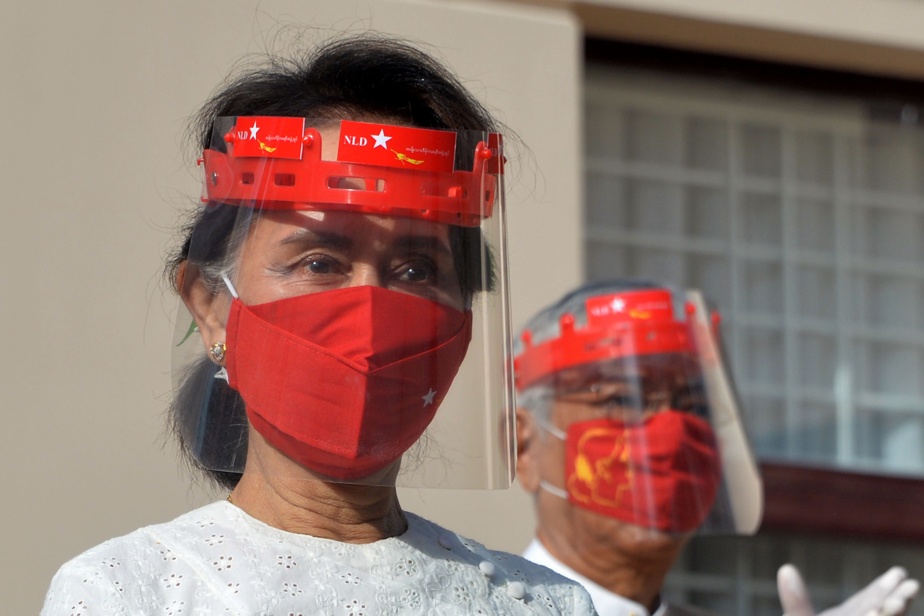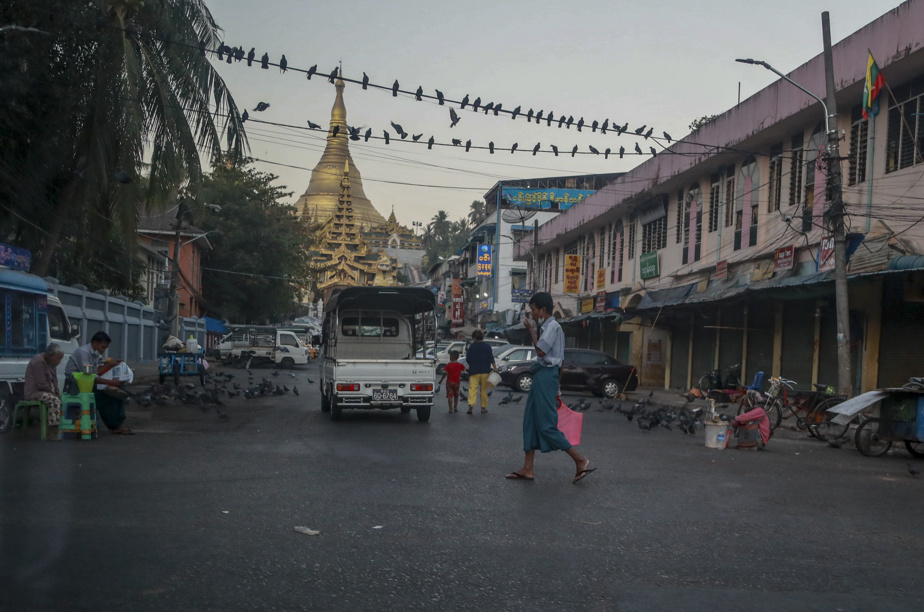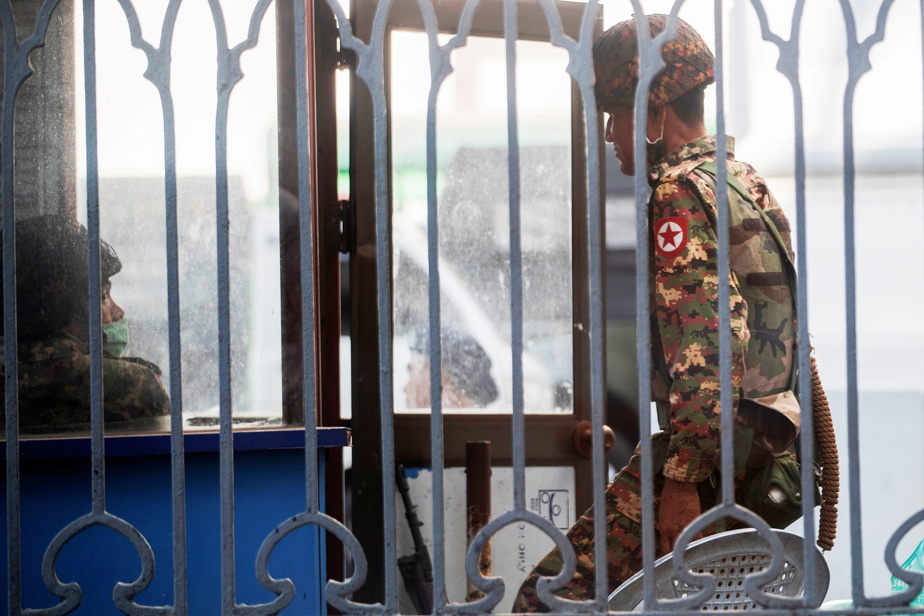(Yangon) The Burmese military appeared to tighten control over the country on Tuesday following the white coup in which leader Aung San Suu Kyi was arrested, and multiple international condemnations remained unanswered by the generals.
Running into legislative elections in November, the military declared a one-year state of emergency on Monday, abruptly ending a 10-year democratic arc.
They arrested Aung San Suu Kyi, 75, and other leaders of her party, the National League for Democracy, just before the first session of Parliament.

PHOTO THET AUNG, ARCHIVES AFP
Aung San Suu Kyi
Her party called Tuesday for the immediate “release” of the former leader and the other leaders of the movement.
The National League for Democracy wrote on its Facebook page: “Release all detainees, including the President (Win Myint) and State Councilor (Suu Kyi).” This coup is “a disgrace in the history of the state and the Tatmadaw”, the Burmese army. A member of her training reported that Aung San Suu Kyi is under house arrest in the capital, Naypyidaw.
Many countries condemned the coup, as Washington threatened to impose sanctions, and an emergency meeting of the UN Security Council will be held on Tuesday.
There was no sign of a major military presence in Rangoon, the economic capital, on Tuesday morning, evidence of the army’s confidence in its control of the country 24 hours after the coup, according to observers.
Phone connections and internet access, which had been severely disrupted the day before, were back in business, banks reopened, but Yangon International Airport remained closed.
Agence France-Presse journalists indicated that the markets and streets, which were generally lively despite the Coronavirus pandemic, were quieter than usual, although few residents were heading to the park for morning exercise.

PHOTO THEIN ZAW, AP
The tongues were struggling to loosen their chains for fear of retaliation in a country that has lived since its independence in 1948 under the yoke of a military dictatorship for nearly 50 years.
“People are afraid to criticize publicly, even if we don’t like what is happening,” Mong Zhao, who runs a small meat stall, told AFP.
“Aung San Suu Kyi is in the hands of the military, we can’t do much,” said a taxi driver, who requested anonymity.
House arrest in Suu Kyi?
The military has not released any information about the whereabouts of the former leader, President Win Myint, and other NLD officials, who have been arrested.
A member of her party told Agence France-Presse, who asked not to be identified, that we were told that she was “under house arrest in Naypyidaw” in the capital. “But we are concerned,” adds this deputy, who is himself under house arrest in the building where the deputies reside.
To justify their coup, the soldiers asserted that the legislative elections in November, which were overwhelmingly won by the National League for Democracy, were marred by “massive irregularities,” which the electoral commission denied.
Sensing the events, Aung San Suu Kyi has prepared a letter in anticipation, urging Burmese “not to accept a coup.”
The army pledged to hold new “free and fair” elections after the state of emergency was lifted for a year.
But the generals have remained silent in the face of strong condemnations from outside.
US President Joe Biden called on the international community to “speak with one voice to demand that the Burmese army hand over power immediately,” while the United Nations and the European Union unanimously condemned the coup.
In return, Beijing refused to criticize anyone, and simply called on all parties to “resolve differences.”
It looked international
Army Chief Min Aung Hling, who now concentrates most of the powers, is ostracized from Western capitals because of the army’s bloody crackdown on the Muslim Rohingya minority, a tragedy that Burma deserves. ” To be accused of “genocide” before the International Court of Justice, the highest court in the United Nations.
Aung San Suu Kyi, who has been criticized internationally for her passivity in the crisis that has prompted hundreds of thousands of Rohingya to seek refuge in Bangladesh, remains beloved in her country.
Long in exile, “Mother Soo” returned to Burma in 1988, becoming the figure of the opposition against the military dictatorship. She spent 15 years under house arrest before the military released her in 2010.
In 2015, the LNA gained a large majority and the former dissident was forced into a careful sharing of power with the still very powerful army.
Derek Mitchell, the former US ambassador to Burma, said that despite the Rohingya crisis, the West “should respect” the outcome of the November legislative elections, which it won. “Not the person, it’s the democratic process” is at stake.

“Extreme twitteraholic. Passionate travel nerd. Hardcore zombie trailblazer. Web fanatic. Evil bacon geek.”


